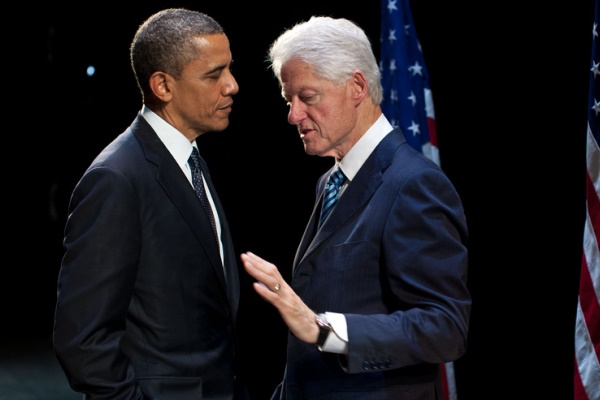Former Israeli finance minister reveals how the former American president tried to influence Knesset legislation and committee hearings on behalf of U.S. energy corporations.

Former Israeli Finance Minister Yuval Steinitz revealed that former U.S. President Bill Clinton tried to have the Sheshinski Committee for natural gas revenues dismantled. According to Steinitz, Clinton, along with several members of congress whose names weren’t revealed, tried to stop the Israeli government’s attempt to increase the tax burden on American corporations.
Yair Lapid replaced Mr. Steinitz at the Finance Ministry when the new Netanyahu government was formed.
Several years ago, the unexpected discovery of huge natural gas fields off Israeli shores led to a heated public debate – which continues to this day – regarding the relatively low tax burden on local energy companies and their international partners. The Sheshinski Committee, formed by the finance minister in 2010, was instructed to examine the contracts between the state and the energy companies and come up with a new tax policy. Its work was accompanied by an intense lobbying effort on behalf of the gas companies.
At the time, sources in the Infrastructure Ministry claimed that former U.S. President Bill Clinton was hired by Noble Energy to raise the issue with the Israeli government.
In an interview with Maariv earlier this month, Steinitz shed light on the former U.S. president’s role on behalf of the international energy corporation:
“The … scary moment was when pressure from the White House began. The energy companies hired American lobbyists, including former president Bill Clinton, who sent letters and led talks in order to dismantle the Sheshinsky Committee and stop the [new] tax bill. American Congress members asked me for clarifications. There was a sense of pressure, as if we are doing something wrong with regards to the commerce relations between the two states. I tried to explain that we are in the lowest rank in the world in terms of state profits from gas and oil discoveries, that we get nothing and that Israeli citizens have a moral right to benefit from resources just as much as private companies.
The pressure went on, Steinitz says, until late 2010, when the Obama administration decided to stop its involvement in the issue, paving the way for the legislation of a new tax law in 2011. Prime Minister Netanyahu, however, introduced some changes to the Sheshinski Committee’s recommendations in favor of the gas companies.

